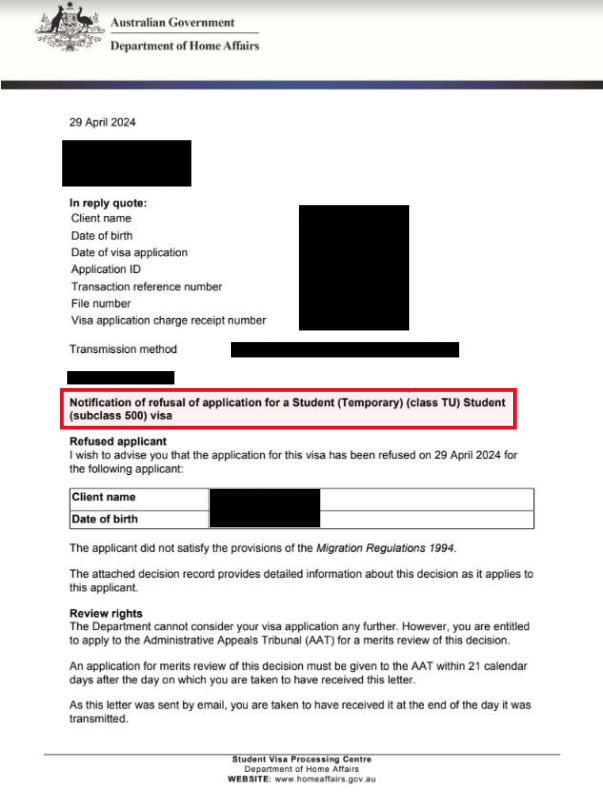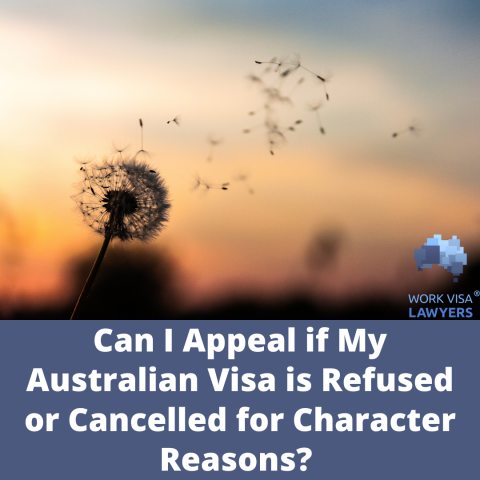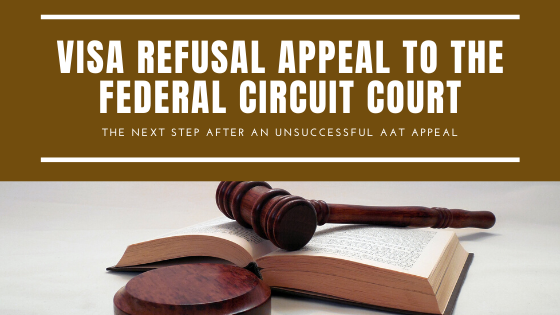Picture this: you've been living in Australia for the last 10 years with your wife and child. You had a criminal history in your home country, but you moved away to get a fresh start and put that life behind you. You're here on a genuine visa and you're earning your keep by legitimate means. But then you get a notification from the Department of Home Affairs saying your visa has been cancelled due to "character grounds", and you have 9 days to lodge an appeal or you must leave the country. What are you going to do?!
Section 501 of the Migration Act 1958 gives the Minister for Home Affairs, or their delegate, the right to refuse or cancel a visa if they are satisfied that the visa holder does not pass the "character test". In addition, Subsection 501(3A) imposes an obligation on the Minister to cancel a visa if an applicant/visa holder fails the character test for specific reasons- which means if you tick the right boxes, the Minister must cancel your visa.
These laws have only recently been put into place but they apply retrospectively. This means that even though the law didn't exist when you moved to Australia and got your visa, it applies to you now. And that's how people find themselves in very difficult situations like in the example above.
What is the Character Test?
The character test is set out in Subsection 501(6) of the Migration Act and it lists a number of reasons for which a visa can or should be cancelled. The list is long, but it includes:
- having a substantial cirminal record
- having committed sexually based offences against a child;
- having committed offences while in or escaping from immigration detention;
- being involved in people smuggling or slavery; or
- being part of a criminal organisation (such as the mafia).
In our experience, the most common reason for cancellation of refusal is though incurring a "substantial criminal record".
Substantial Criminal Record
The Migration Act says a person has a "substantial criminal record" if they have been (and this is not an exchaustive list):
- sentenced to a term of imprisonment of 12 months or more;
- sentenced to death; or
- found unfit to stand trial, and has been retained in a facility or institution.
What Can You Do About a Visa Refusal or Cancellation for Character Reasons?
Refusal or cancellation decisions are appealable to the Administrative Appeals Tribunal. The tribunal is required to make a decision on the appeal within 84 days of the applicant being notified of the refusal/cancellation.
Just as with the Minister, the tribunal is required to weigh up the facts that arise in the matter with respect to Ministerial Direction 90, as follows:
Primary considerations:
- Protection of the Australian community from criminal or other serious conduct;
- Whether the conduct engaged in constituted family violence;
- The best interests of minor children in Australia;
- Expectations of the Australian community.
Other considerations:
- International non-refoulement obligations (not sending you back to a country where you will be persecuted);
- Extent of impediments if removed (how badly you would be affected by it if you are sent home);
- Impact on victims; and
- Links to the Australian community, including:
- Strength, nature and duration of ties to Australia (such as family, friends and community); or
- Impact on Australian business interests.
As you can see, Ministerial Direction 90 provides ample opportunity for a lawyer to develop an appeal argument. The tribunal’s decision ultimately turns on the weight it assigns to each consideration and whether it feels the positives outweigh the negative aspects of an applicant’s situation.
In our experience it is important to recognise an appeal’s strengths and weaknesses and focus submissions accordingly. For example, if an applicant has an extensive criminal record there is no value in trying to argue that they don’t. Instead, it is important to acknowledge it and provide an explanation and context for that offending as well as emphasising the positive aspects of their situation – such as family, cultural, or business ties to Australia. The discretion granted to the tribunal offers applicants the opportunity to put their best foot forward.
Timing
Appeals of Section 501 refusals and cancellations are time sensitive processes, given that the tribunal is required to hand down a decision within 84 days. As such, it is important to be organised, focused, and strategic in where to focus your energy. Do not waste time!
If you do find yourself facing a section 501 refusal or cancellation you need to speak to an experienced immigration lawyer immediately to understand your options. Work Visa Lawyers is happy to discuss your options further, provide an assessment of the strengths and weaknesses of your case, and give you an indication of whether we consider there to be sufficient grounds to lodge an appeal.
Make an appointment now if you need help on a visa refusal/cancellation appeal.
Author:

Lochlan Reef MacNicol, Lawyer & Registered Migration Agent at Work Visa Lawyers
Do you need help?

Our team of experienced Immigration Lawyers and Migration Agents look forward to assisting you with your Australian visa or appeal.
Based in Adelaide South Australia, we provide Australian Immigration advice to people and businesses from all over the world.
If you require further information regarding your Australia visa options you can contact us through:
(08) 8351 9956 or +61 8 8351 9956 or This email address is being protected from spambots. You need JavaScript enabled to view it.
You can also subscribe our Facebook: WORK VISA lawyers
Disclaimer
This information is correct at the time of publication but is subject to change without notice. All information provided on this page is provided for purely educational purposes and does not constitute legal advice. For advice on your situation, please speak with an Immigration Lawyer or a Registered Migration Agent.














